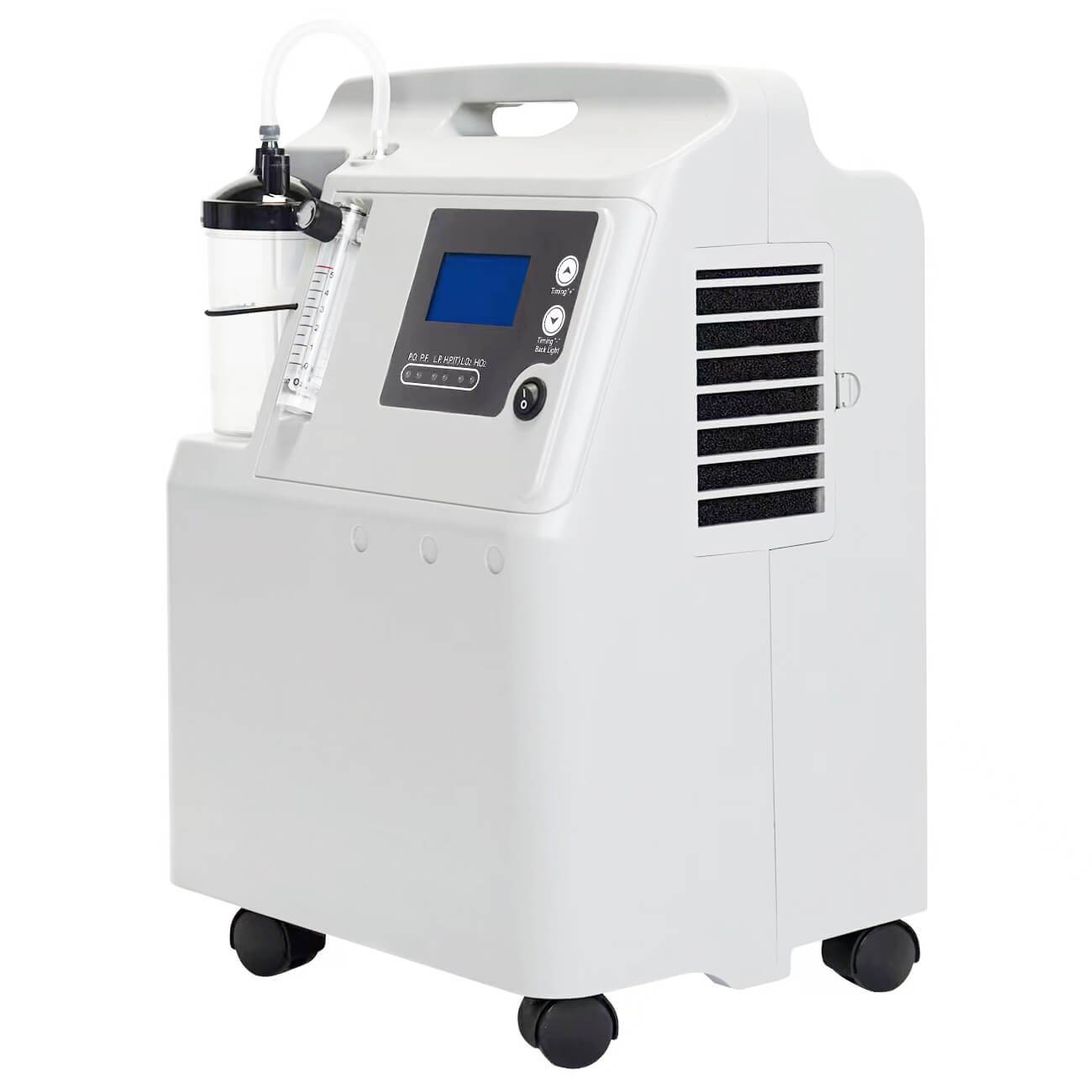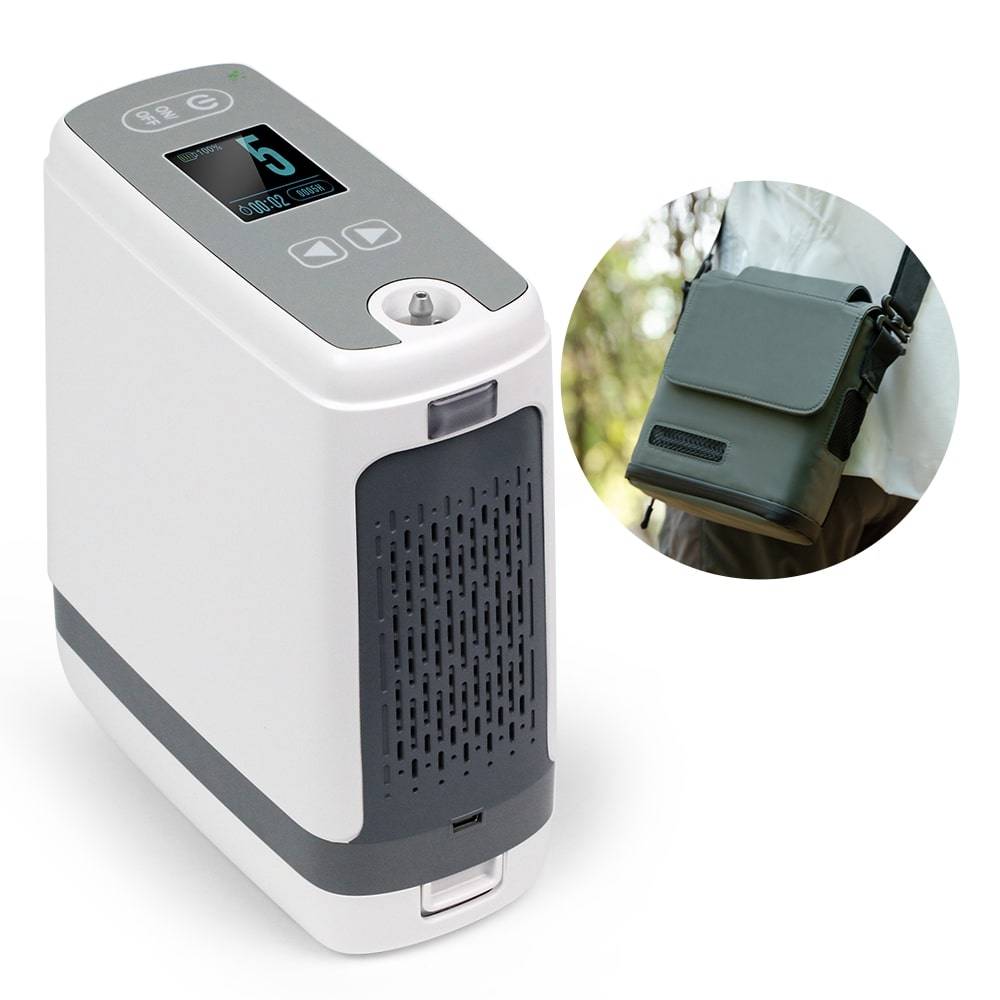Oxygen Concentrators: When They’re Essential


Oxygen Concentrators: When They’re Essential
Oxygen therapy isn’t just for dramatic hospital scenes anymore; it’s an essential support system for people battling various respiratory conditions. For many, oxygen concentrators can make daily breathing less of a struggle and more of a steady rhythm. Let’s explore the common culprits that might leave you gasping for air and how oxygen concentrators can come to the rescue.
Common Conditions Calling for Oxygen Therapy
- Chronic Obstructive Pulmonary Disease (COPD): COPD is a real party pooper for your lungs, often caused by prolonged exposure to irritants like cigarette smoke, air pollution, or chemical fumes. Over time, these irritants damage the lung tissue, narrowing the airways and causing chronic inflammation. For patients, this means persistent symptoms like coughing, wheezing, and breathlessness—like climbing a steep hill without ever reaching the top. With reduced oxygen levels in the blood, people with COPD can feel perpetually exhausted. Here’s where oxygen concentrators step in: by delivering concentrated oxygen, these devices help the lungs do their job more efficiently, easing the burden on the heart and other organs. Consistent oxygen therapy improves stamina, reduces shortness of breath, and can even enhance quality of life.
- Asthma: Asthma can be a bit like that friend who shows up uninvited at the worst times. It can strike unexpectedly, causing inflammation in the airways. Triggers like allergens or irritants cause sudden tightening of the airways, making it feel as if you’re trying to breathe through a straw. During an asthma flare-up, oxygen levels in the blood can dip, which makes oxygen therapy an effective solution. Oxygen concentrators help by providing a steady oxygen supply, reducing the need for the body to strain and helping calm inflamed airways. For many with severe asthma, having an oxygen concentrator on hand can prevent the exhaustion that follows an intense episode.
- Congestive Heart Failure (CHF): In congestive heart failure, the heart doesn’t pump blood as effectively as it should, which can result in fluid retention in the lungs and lower oxygen levels throughout the body. This lack of oxygen can leave people feeling constantly fatigued. Oxygen therapy can lighten this load by providing the body with the oxygen it needs without the heart having to work harder. An oxygen concentrator can help increase energy, reduce breathlessness, and even help prevent further complications related to heart strain.
- Pulmonary Fibrosis: Pulmonary fibrosis leads to thickened, scarred lung tissue, often due to environmental factors or chronic conditions. This scarring reduces the lungs’ capacity to take in and transfer oxygen effectively, leaving those affected with a constant sense of shortness of breath, even during light activity. Oxygen concentrators offer a way to bypass the lungs' reduced efficiency, providing a steady oxygen stream that compensates for the limited lung capacity. This oxygen support allows for improved breathing and can ease some of the strain on the heart and other organs, making day-to-day life more manageable.
- Pneumonia: Pneumonia is like your lungs hosting a bad party—bacteria or viruses invade and take hold in the lungs, causing inflammation and fluid buildup, which obstructs the lungs' ability to transfer oxygen to the bloodstream effectively. The result? Intense fatigue, fever, and a struggle for each breath. Oxygen concentrators help support pneumonia recovery by ensuring your body receives sufficient oxygen, even when your lungs are temporarily weakened. By delivering a steady oxygen flow, these devices can make each breath more comfortable, helping the body fight off infection more efficiently.
- Neuropathy: When nerves are damaged by conditions like diabetes or autoimmune diseases, they can impact breathing function. Nerves control the muscles that help us breathe, so if they aren’t working correctly, it can be challenging for the lungs to draw in enough oxygen. Here’s where oxygen concentrators can be a great support—they provide the oxygen the body needs even when nerves fall short. For those with neuropathy-related breathing issues, having a concentrator can be like a backup system, ensuring that oxygen levels remain stable.

Why Oxygen Concentrators Are Your Best Friends
Our oxygen concentrators are like your new best friends—they’re there for you when you need them the most! They deliver a steady stream of 93%±3% oxygen without the hassle of tanks or refills, ensuring you always have access to the oxygen you need.

Meet Our 5-Liter Oxygen Concentrator
Your Oxygen Backbone
Our 5L oxygen concentrator is your reliable backbone for consistent oxygen therapy. Designed to provide steady, dependable oxygen at home, it keeps you breathing easily throughout the day—and helps you sleep soundly at night. Think of it as your home assistant, quietly working in the background so you can focus on living well.

Meet Our Portable Oxygen Concentrator
Your Oxygen Sidekick
Need oxygen while you’re on the go? Our portable oxygen concentrator is your perfect sidekick. The gadget delivers oxygen wherever life takes you—whether it’s a trip to the store or a weekend getaway. Lightweight and easy to carry, the pulse dose POC is your perfect companion for both therapeutic needs and daily adventures.
Oxygen Therapy: A Pathway to a Healthier, Fuller Life
The conditions we’ve mentioned are just the beginning! Oxygen concentrators can also step in to support a range of other acute and chronic conditions. By boosting oxygen levels and reducing strain on the body, they can be a lifeline for those facing low blood oxygen (hypoxia), helping restore energy and vitality. If you think an oxygen concentrator might be right for you, consult your doctor! With the right support, you’ll be back to living fully—breath by breath!
share this article
Disclaimer: This article is for informational purposes only and is not intended as a substitute for professional medical advice, diagnosis, or treatment. Please consult medical professionals or qualified healthcare providers regarding any questions you may have about any medical conditions.
